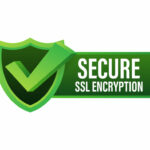In today’s digital landscape, security and user trust are paramount for the success of any online venture. With cyber threats continuously evolving, website owners must take proactive measures to protect their visitors’ data and ensure a secure browsing experience. One crucial component in achieving this is the implementation of SSL certificates. This article aims to demystify SSL certificates, explaining what they are, why they’re essential for website security, and how they impact SEO.
Understanding SSL Certificates
What is an SSL Certificate?
SSL (Secure Sockets Layer) certificates are digital certificates that authenticate a website’s identity and enable an encrypted connection. Essentially, SSL ensures that data transferred between a user’s browser and the web server remains private and integral. When a website is secured with SSL, the URL begins with “https://” rather than “http://,” with the “s” standing for “secure.”
How SSL Works
SSL certificates work by using a pair of cryptographic keys: a public key and a private key. These keys work together to establish an encrypted connection. Here’s a simplified breakdown of the process:
- Browser Connection: When a user navigates to an SSL-secured website, their browser requests the web server to identify itself.
- Server Response: The server sends a copy of its SSL certificate, including the server’s public key.
- Browser Verification: The browser checks the certificate against a list of trusted Certificate Authorities (CAs). If the certificate is trusted, the browser generates a session key, encrypts it with the server’s public key, and sends it back.
- Server Decryption: The server decrypts the session key using its private key, establishing a secure session with the browser.
- Secure Data Transfer: Data transferred between the browser and the server is encrypted using the session key, ensuring privacy and security.
The Importance of SSL for Website Security
Data Encryption
The primary benefit of SSL certificates is the encryption of sensitive data. This is crucial for websites handling personal information, such as login credentials, credit card numbers, and other private data. By encrypting this information, SSL prevents malicious actors from intercepting and misusing it.
Authentication and Trust
SSL certificates also serve to authenticate a website’s identity. This authentication process builds trust with users, who can be assured that they are interacting with a legitimate website and not an imposter. Websites with SSL certificates display a padlock icon in the browser’s address bar, which has become a universal symbol of online security.
Protecting Against Phishing Attacks
Phishing attacks involve fraudulent websites that mimic legitimate ones to steal sensitive information. SSL certificates help protect against these attacks by verifying the authenticity of the website. Users are more likely to trust and engage with websites that display SSL certification.
SSL and SEO: A Symbiotic Relationship
Google’s Stance on SSL
Google, the world’s leading search engine, has been a strong advocate for SSL adoption. Since 2014, Google has included HTTPS as a ranking signal in its search algorithm. This means that websites with SSL certificates may receive a slight boost in search engine rankings, making SSL not only a security measure but also an SEO strategy.
Enhanced User Experience
User experience is a critical factor in SEO. Websites secured with SSL load faster, and users feel safer browsing and sharing information on these sites. A secure, user-friendly website can reduce bounce rates and increase engagement, both of which are positive signals for search engines.
Avoiding Security Warnings

Modern browsers issue warnings to users when they attempt to access non-HTTPS websites. These warnings can deter visitors, leading to higher bounce rates and a negative impact on SEO. By implementing SSL, website owners can avoid these warnings and ensure a seamless experience for their users.
Types of SSL Certificates
All of the following SSL Types are available at Hosting Australia
Domain Validated (DV) Certificates
DV certificates are the most basic type of SSL certificate, verifying the domain name ownership. They are suitable for blogs, personal websites, and small businesses.
Organization Validated (OV) Certificates
OV certificates require a more rigorous validation process, verifying the organization’s identity. They are ideal for businesses and organizations seeking to establish greater trust with their users.
Extended Validation (EV) Certificates
EV certificates offer the highest level of validation, requiring thorough vetting of the organization’s legal, physical, and operational existence. Websites with EV certificates display a green address bar in some browsers, indicating the highest level of security and trust.
Implementing SSL: Best Practices
Choose the Right Certificate
Select an SSL certificate that matches your website’s needs. Consider the level of validation required and the nature of the data you handle.
Use Strong Encryption
Ensure that your SSL certificate uses strong encryption standards, such as 2048-bit key encryption, to provide robust security.
Regularly Update and Renew Certificates
SSL certificates are not perpetual. They need to be renewed periodically. Keep track of expiration dates and renew certificates promptly to maintain continuous protection.
Monitor for Vulnerabilities
Regularly scan your website for vulnerabilities and ensure that your SSL configuration remains up-to-date with the latest security practices.
Conclusion
SSL certificates are indispensable for website security and have become a critical component of modern SEO strategies. By encrypting data, authenticating website identities, and enhancing user trust, SSL certificates protect both website owners and their visitors. Moreover, with search engines like Google favoring HTTPS websites, implementing SSL can improve search engine rankings and overall online presence. For website owners looking to secure their sites and boost their SEO efforts, investing in SSL certificates is a necessary and valuable step.
Find the SSL that suits your organisation with Hosting Australia







